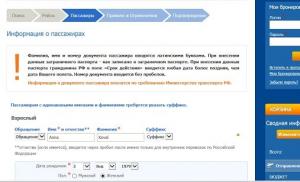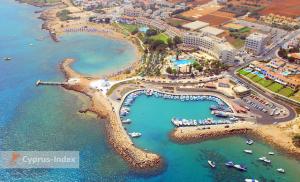Secrets of beach gold hunting with stingy and md. Finding coins on an ancient beach
There are several common misconceptions that beach-going searchers inexplicably hold. Let's try to figure out what you should and shouldn't do on the beach.
1. There are a lot of decorations on the beach.
This is not entirely true. In general, if you happen to get to a beach unexplored by other search engines, and even where large number holidaymakers constantly, then, of course, there will be jewelry. But not as much as you might initially think, so you won’t return from the beach a millionaire. Simply because, having lost a valuable ring or pendant, sunbathers dig through tons of sand, and most often return the jewelry.
In general, the main finds on the beaches are modern coins, coins from the times of the USSR, corks, caps, candy wrappers, foil, sinkers, and fishhooks.
Findings from a search session on the Mediterranean coast.
2. You can search on the beach with any reel.
Yes, of course you can. But what will this search be like? Constant signals, and it is not clear where, and if you turn on discrimination, you can miss something valuable... So you should not carry a large coil to the beach. It is better to take a sniper rifle, it is ideal for small targets and with it you will be less distracted by digging holes. Or a metal detector with a small coil (like Go-FIND).

Go-FIND are great metal detectors for the beach.
3. You should go to the beach with a sieve or scoop.
This statement is true, but only partly. If the search is on the ground, it is quite possible to do without them. In this case, it is worth taking gloves to avoid getting cuts from broken glass, fish hooks and pebbles. In general, it is, of course, more convenient with a stingy one. And in the water without it it’s generally difficult, the turbidity rising from the bottom makes it difficult to see the target, and you have to lift the targets literally by touch.

Pointed scup is best.
4. The best time for beach searching is summer.
The good thing about beach search is that it can be carried out at any time when the beach is not covered with snow and the river is ice-covered. Of course, summer is a great time to search the beach. It’s especially good to look early on Monday morning: at that time there is no one on the beaches, and there are practically no competitors either. However, experienced search engines also like to search beaches in the spring, after rivers flood. Sometimes you can find interesting artifacts brought by the current.

A strange find made on the beach in the spring.
Well, in the fall, when there is absolutely no one on the beach, you can dig for your own pleasure.
As for sea beaches, in Russia, for example, the normal time for searching is after winter storms. The sea just washes everything ashore. It is also good to dig after low tide.
5. Searching on the beach is the safest.
Not at all. Most of the beaches in our latitudes are river beaches, which means there are forests nearby. If the beach is wild, then wandering off into the bushes can easily pick up a tick. Midges, horseflies and mosquitoes also feel great. In short, repellents won't hurt.
But this is not the main thing. The main danger is the trash that people leave behind. In the previous paragraph we already mentioned fragments and hooks.
Syringes are also found on the sand. You yourself know that they are not from insulin, and how dangerous it is to inject yourself with one. According to statistics, HIV infection is common among drug addicts.

Usually there are no caps on syringes...
Also, for some unknown reason, dogs can run around on the beaches, even at 5 am. It's worth taking pepper spray or even a stun gun for peace of mind.
And, of course, the worst thing is to meet drunk, aggressive vacationers. In this case, each search engine has its own strategy. Sometimes the same stun gun can come in handy. However, it is better not to bring matters to a direct conflict; it is easier to leave.
6. You don’t have to take anything with you to the beach except water.
Not true. At a minimum, you need: a mini first aid kit (hydrogen peroxide and band-aid), a gas canister, wet wipes, and a lost and found bag. If you plan to search in shallow water, you will need a swimming mask or at least goggles. And waterproof headphones.
7. Gold rings “sink in the sand.”
That's true. However, again, everything is different on river beaches, not the same as on sea beaches. The sea layer of sand is very large, and gold, like a heavy metal, sinks deep very quickly. On beaches near rivers and lakes, it often happens that the gold goes only under the “dry” or loose sand, stopping at the level of the dense, moist, clay soil underneath. The same is true for grassy beaches. True, there are fewer finds on them.
In fact, any type of search has certain “myths” that are not true. Knowing them, you can be sure that the search will become easier and, to some extent, more enjoyable.
Good luck on the beaches!
This year, unexpectedly, I was taken on vacation to Odessa region, namely in the urban-type settlement of Zatoka. Got there at the beginning velvet season. Why I went to the sea during this period, what I dug and how many gold seekers I saw there, read about all this further.
In 2017, the entire Black Sea coast in the Odessa, Nikolaev, Kherson, and Zaporozhye regions was packed with vacationers. The famous “Odessa highway” (E95) was crowded with cars with license plates BL, MD, and less often with RU. Every time we went to the coppice and our route ran along this transport artery, a large number of cars from neighboring countries It was simply surprising. So there was no question of any holiday by the sea during the season (end of May - August) - I don’t like crowds, and the prices are an order of magnitude higher. Definitely: if you vacation in the south, then only in September!
For the future: first week of September, it's still season! All the cafes and attractions are open, the parking lots are full, the beach is full of people, the prices are outrageous. But already in the second week there are noticeably fewer people, as well as entertainment.
Searching with a metal detector on the beach in 2017
Which metal detector should you use to go to the sea? After thinking a little about this issue, I settled on one with a standard coil (too large). Why this MD? He was guided solely by one motive: salty sand. Grains of sand, especially sea sand, are such an infection that will crawl into any crack, and moist air will corrode any metal. Fisher 44 is designed in such a way that it is not afraid of moisture, sand, or dust - even if you bury it in the sand, the device worked and will continue to work even after several years.
Purely because of laziness, I only went to the cops twice. It is very difficult for me to get up at half past six in the morning when I went to bed (not always sober) late at night. 🙂
Morning. A calm sea and an almost empty beach are a blessing. What else does a digger need?
On the first day, a guy from our company went with me because he wanted to look at the “cop.” So that he wouldn’t get bored, I also handed him a spatula.
And so we walk on the sand, which is saturated with salt, and slowly dig. For some reason there is practically no garbage. It turns out that every day a special car drives along the beach and removes garbage. I wonder how much interesting stuff she takes out of the sand?
With my luck I can't find much, but when I'm not alone, then there's a chance. And after about 30 minutes of collecting small change, a pendant in the shape of an elephant appeared from the sand and right there, about 40 centimeters away, lay a chain. All the silver is my lucky partner. 😀
After walking around a bit, we met a local digger with . I chatted with him for about 20 minutes and learned a few secrets of a beach cop, more on them below.
It’s the beginning of the 9th, people are slowly crawling towards the sea - we need to leave.
Serebrishko is a pleasant find. But even despite this, the boy will not go with me anymore - the instrument search did not conquer him.
The second time I went myself. My finds are only coins. Not even surprising...
Here is the result of my search, a total of 4 – 4.5 hours.
The result is good or not, I don’t know. Anyone who walks along the beach with a metal detector, let him write in the comments what kind of beach cop I turned out to be.
Metal detector on the sea beach.
As you know, AKA metal detectors do not work on salty sand. Phantoms, glitches, and whitewash on the display do not allow these devices to even see the coin from above. Why can they even work there, but powerful AKAs can’t? Therefore, it is reasonable that I was interested in how the Fisher F44 would feel on the sea beach and in the coastal zone. Here on the blog they told me that there would be no problems, but I would like to see for myself.
Yes, neither Fisher nor Deteknix in the sand were buggy. Even more - their detection depth did not fall and was the same as at home. found the pin at a depth equal to the length of the XPointer (about 20cm).
cop coins
In the coastal zone there is a phantom on the water. Reducing sensitivity cures this problem, but I didn’t do it because I didn’t look there. After all, to rummage in the water you need a scuba. I didn’t have that with me, so I focused on dry sand.
In conclusion.
I like beach search. If it weren’t for my laziness, I would have dug up more interesting things, but this is my result in two short trips: a silver chain with a pendant and 20 hryvnia 44 kopecks in change.
On the beach I saw only acevods (with self-propelled guns it doesn’t count). I'm sure that with mine I would have collected some interesting things from them. 😉
At the base where we stayed, at the end of our vacation there were almost half as many vacationers. But for some reason there weren’t any fewer of them on the beach. Apparently, we are not the only ones who are so “smart”: lovers of relaxation during the velvet season.

Finding lost coins and jewelry on the beach seems like a sure thing for many treasure hunters. In fact, the beach search has its own nuances and subtleties, and the apparent simplicity of getting rich sometimes turns into empty cops.
In this article we will try to understand which metal detector is better to choose for the beach, how to behave and when to go to the cops.
What you need to know about beach searching
The main thing to remember at the beach is water. Water is nearby, water is in the ground. We took an unprotected metal detector, excitedly put it down or dropped it in the water - and instead of profit we get a loss - repairing the control unit will cost more than a single coin.

If the beach is sea, we face the next problem - salt.
Effect of salts
First of all, salt from water easily passes into the soil, making it more mineralized. It becomes more difficult to rebuild a metal detector from such soil. And devices that do not provide ground balance at all can be enchantingly glitchy on salty sand, giving out signals where there is nothing at all.
Devices with ground detuning must be reconfigured as they approach the water - the mineralization of the soil changes. Salty soil also requires a coarsening of sensitivity, and, consequently, a decrease in search depth. Fortunately, this is not critical on the beach; the finds lie in the upper layer or on the surface of the sand.

Salt also affects the condition of metal detectors - it gradually corrodes the aluminum rods, and the plastic coil and wire insulation have a hard time in a salty environment. You should not throw the metal detector after salt water - rinse it with fresh water or at least wipe it, less salt will remain after drying.
Coil protection
A simple but important conclusion follows from the previous part. Salt, drying on surfaces, makes adjustments to the operation of the device. If you use coil protection, after working in salt water, rinse both the coil and the protection separately with fresh water - this will prevent salt from remaining in the gaps and affecting the operation of the detector.

What if fresh water If you don’t have it at hand, work without protecting the coil and wipe it dry after digging.
Restrictions in the law
Everything that is in the ground or under water in Russia belongs to the state. Anything excavated over 100 years old must be taken to a museum.
The search itself on the beach is in no way illegal if the beach is not included in a special list of objects cultural heritage. We read about where you can go digging for a day and stay for 4 years in our material The Law on Metal Detectors in Russia in 2019: where is it safe to dig, do you need to get a permit and what are the fines for violations.

The law does not prohibit you from walking with a metal detector along the beach, or through the forest, or along central square cities. As long as you don’t dig a monument or disturb the cultural layer in specially protected places, they may only hinder you out of curiosity.
Types of beach search
Experienced treasure hunters divide the beach into several zones, roughly parallel to the water line. There is a dry zone - sand on the beach, a children's zone - a depth of up to 40 cm (knee-deep), a girl's zone - up to 70 cm (waist-deep), a zone of up to 120 cm (chest-deep) treasure hunters define as "possessed" - at this depth Most of the games happen, during which people lose jewelry, and everything deeper is the zone of the fattest swag, but also the rarest.

Features of beach search without entering the water
Coins and jewelry that were stuck in a sock, the edge of a bedspread, or other secluded places are also located on the sand. And then they shook up the stash and here it is - a loss of losses.
Features of searching with entry into knee-deep water
In the children's area you can find crosses, icons, and children's decorations. And everything that the sea brought is located approximately here.

Features of searching on the beach with waist-deep water
In the girls' area there are rings. Girls often lose weight, but they don’t wear rings to the jeweler. She’s lost weight, the ring falls off her finger, but she still takes it to the beach, right into the hands of a treasure hunter.
Features of searching in deeper places
In the “possessed” zone, you can pick up chains and earrings.
And in the deeper one you can find any decorations at all. As a rule, they lose gold and silver in extreme situations, in panic. A man begins to drown - and instinctively tears everything off himself.
Or rescuers accidentally break the chain.

If you can still walk up to your waist with a conventional metal detector, then there is nothing to do deeper without a waterproof device.
What is the best metal detector for beach detecting?
Cheap or expensive? Simple or sophisticated? We will try to answer these questions below.
Why any cheap metal detector is not suitable for the beach
The beach, and especially the salty beach, is a difficult soil. It’s not for nothing that many Beach digital metal detectors have a separate search program. Uneven humidity, uneven high mineralization, the presence of numerous metal debris - these are the factors by which simple metal detectors are discriminated against.

A simple metal detector is not necessarily cheap. The lack of ground balance is a direct contraindication to using the device on the sea beach. The treasure hunter will get nothing but disappointment from such a search.
What will be useful for a beach metal detector?
First of all, a competent operator is useful for a beach metal detector. Without it, any sophisticated technology turns into a useless and very expensive toy.
Waterproof. Even if you behave with extreme caution, it is impossible to insure yourself against a wave raised by an idiot on a jet ski. If the device does not have native water protection, you should take care of it.
Or change the device to a protected one. At the same time, it will be possible to master underwater search at a depth of 2-3 meters.

Ground balancing or the presence of a special beach search mode. This is an important thing, without which you should not go to the beach, especially the sea one. Or independently and tediously turn the potentiometers, knocking down the sensitivity to a minimum and dooming yourself in advance to search in a layer up to 5 cm maximum.
Search on the sea beach
We talked about the technical aspects above. Let's talk about the best time to go to the sea beach.
If you decide to combine business with pleasure and walk along the beach during its complete occupation by civilians, get ready for disappointment and negativity. Not the entire population understands what the treasure hunter is doing and why he is bothering citizens.

Therefore, it is better to go out searching in the morning or evening or even out of season - in spring or autumn, the main thing is that the snow has either already melted or has not yet fallen.
Naturally, it is better to go to the sea beach during low tide. There will be less need to climb into wet water. And during high tide you can spend searching on the sand.
Tools for searching on the beach with a metal detector
In addition to the metal detector itself, the digger will need decent protective gloves - it’s easier to run into glass shards and sharp edges of cans on the beach than, for example, when digging in an open field.
The next accessory is a scoop. There is nothing to do with a shovel on the beach; the soil is not heavy. Therefore, a good light wide scoop is better and more effective than a heavy shovel.

If you are serious about it, then you should get a scub. This is a perforated metal box on a handle, which the treasure hunter uses to simultaneously rake and sift the soil.
It seems that the search on the beach is unremarkable and there should not be any special difficulties. I have already talked more than once about the nuances of beach search, however, this topic continues to worry many searchers who are “chasing” for golden happiness. Therefore, in this short article I will once again voice some of the secrets of beach search, so that your access to sandy beach were crowned with success.
You already remember that when going to the beach, you need to be prepared to dig up “tons” of corks and caps - you can’t escape this, but in order to somehow protect yourself from this misfortune, use the smallest reel that you have. Most often, this measure gives a positive result, and in combination with headphones, you can fully experience all the delights of a beach search, because the beach is a place that is visited by people every year.

Who, when drunk, lose some things without noticing it. And naturally, it is the beach that can please the treasure hunter with chains, rings, and other very interesting and valuable things. So I’ll try to add to your collection of knowledge on searching on the beach.

What you need to know about beach searching
I already said that best time for beach search - this is opening and closing swimming season: spring (early summer) and autumn. And it’s not about the grass, it’s simply not there; it's all about the onlookers, of whom there are always plenty on any beach. But this does not mean at all that you cannot search on the beach in the summer. On the contrary, summer beach It’s quite practical, you just need to go out either early in the morning or in the evening. In addition, remember that searching on the beach is not prohibited, so there is no need to be afraid that someone will see you and so on.

As I said above, you can’t go to the beach without headphones. Especially if there is a wave and you went out at the height of the day, when there are so many vacationers that the background noise completely drowns out the sounds from the device.

If you are searching while there are vacationers on the beach, do not violate their personal space, no matter how much you would like it. Few people will like it if a person with a metal detector walks a meter away from them, digs holes, and so on. Treat people the same way you would like to be treated. In general, try not to conflict, do not run into rudeness.

On any organized beach there are several places where the search can be especially successful. For example, at the locker rooms, coastline and at a depth of up to 1 meter. In the first case, everything is clear, people change clothes, often something falls out of their pockets, falls into the sand, and gets lost. In the second example, swimmers enter the water with a running start, jump, and chains, earrings, and sometimes rings also fly off their bodies.

However, it makes sense to walk around the rest of the beach. It happens that someone takes off his jewelry (chains), puts it next to him on the bedspread, and then, with a random movement of his hand, the whole thing is thrown aside... and the owners do not always find such lost items.

You should also always carefully check the bushes adjacent to the beach (only carefully, since some who like to relax in the bushes may relieve themselves). Often, it is near the bushes that the most interesting finds are found.

Although they say that searching on the beach implies the presence of a scup (and they say it correctly), you can additionally throw an MPL (small infantry shovel) into your backpack, since in some situations such holes are being dug on the beach that you won’t be able to dig up much with a scup. A scoop (a scoop for seedlings) also wouldn't hurt.

Searching on the beach on a sunny day is a test for the body. And while many still somehow manage to compensate for their water balance, they think about the danger of getting sunburned at the very last moment. Hence the advice: if the sun drives away from the beach, be sure to wear a Panama hat on your head (namely a Panama hat, since wearing a cap will burn your face and neck), and a light shirt on your body so that your shoulders, arms, and body are covered. Well, some pants, at least below the knees, to provide maximum protection from the sun. It is better to put your feet in sneakers so as not to accidentally injure yourself on glass, shells, or traffic jams.

On a sunny day, sunglasses are a good idea; they really help against glare on the water.

And lastly, if there are people on the beach, it is recommended to carry the shovel and scup not on the shoulder, as they usually carry a shovel in the fields, throwing the bayonet of the tool over the shoulder, but lowering the working part of the tool down, so as not to injure anyone.

That's all for now, another portion of advice for your piggy bank.
Your Alexander Maksimchuk!
The best reward for me as an author is your like on social media(tell your friends about this article), also subscribe to my new articles (just enter your email address in the form below and you will be the first to read them)! Don’t forget to comment on the materials, and also ask any questions you have about treasure hunting! I am always open to communication and try to answer all your questions, requests and comments! Feedback on our website works stably - don’t be shy!
Of course, in addition to searching in the old days, many treasure hunters try their hand at beach searching. Although there are many who like to dig in the old days, there is also a special caste of searchers - those who purposefully search for jewelry on the beaches. To take it even steeper, there are also gold miners who travel specifically at the end of the beach season not only to the south of Russia, but also to Europe. Needless to say, all this is not in vain and the finds of beach diggers are sometimes quite significant.
We will not consider “cool” beach search professionals, since such people work purposefully, they have serious equipment, costs, and, accordingly, serious finds. What can an ordinary fan of wandering around with a metal detector find on the beach?
The first thing that is most often found on the beach is walking coins, that is, modern coins. People undress, put their clothes on the sand and change spills out of their pockets. These are rubles, 2 rubles, kopecks and, of course, metal tens. And if the anniversary tens were made of bimetal and the signal on them was unique, then the modern 10 rubles are so small, they are made of steel and sound accordingly. But it doesn’t matter, you will find a couple of dozen such coins and understand their signal, in the future you will be sure that you are digging an iron ten.
In addition to traffic jams, there are a lot of traffic jams, both beer and any other. And if beer corks sound special, after a few pieces you already know that it is a cork, then a vodka cork is a different matter. Of course, they are not that frequent, but they do happen.
Also among the annoying and useless finds on the beach are labels from Coca-Cola, Pepsi and other drinks that are in aluminum cans. Beer, by the way, is also sold in these stores. And drinking beer on the beach in the middle of summer is something our audience really loves. The beach is littered, so the searchers on the beach are doing a good deed - cleaning the beach of metal debris.
Well, finally, the very thing for which treasure diggers go to the beach is jewelry There are a great many of them lost on the beach. It can be silver or gold, various products - chains, rings, bracelets, rings, signets, pendants, earrings and much more. Do the math for yourself - for 1 gram of gold in a pawnshop you can get about 1000 rubles, of course gold of standard standard 585. I found a gold ring - it weighs at least 2 grams, and raised a couple of thousand rubles. And if you pick up a bracelet worth 20 grams from the sand, you figure out how much you can earn by selling this little thing to a pawnshop. Many. That's why searching for jewelry on the beach is so popular.
While vacationers are sunbathing and losing their gold, gold miners with metal detectors are awake and picking up what others have lost. This is their hobby, for some it is a job that brings significant income. I also heard that some people go to the South, find so much gold there that there is enough money to completely pay for their trip and still have some left over. So searching for gold jewelry on the beach is a very interesting and profitable activity. sooner or later you will find a gold chain or ring.













